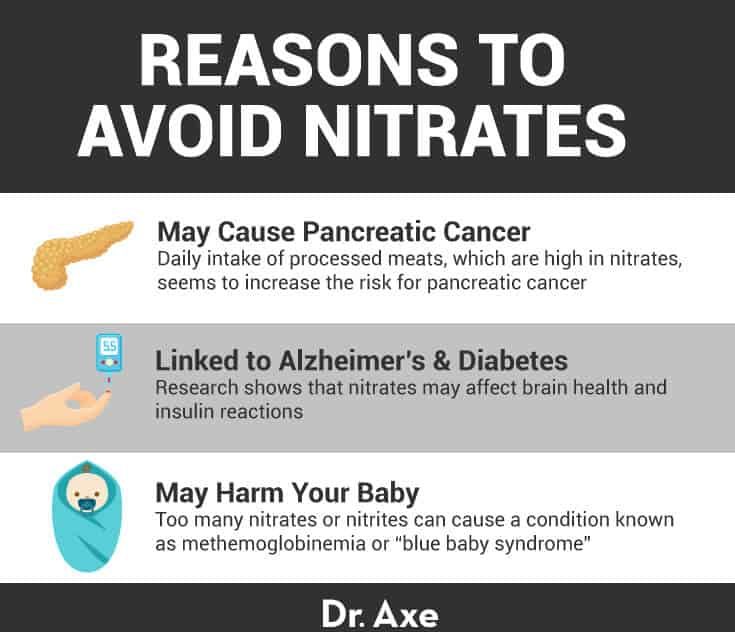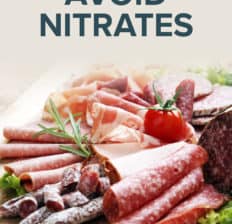This Dr. Axe content is medically reviewed or fact checked to ensure factually accurate information.
With strict editorial sourcing guidelines, we only link to academic research institutions, reputable media sites and, when research is available, medically peer-reviewed studies. Note that the numbers in parentheses (1, 2, etc.) are clickable links to these studies.
The information in our articles is NOT intended to replace a one-on-one relationship with a qualified health care professional and is not intended as medical advice.
This article is based on scientific evidence, written by experts and fact checked by our trained editorial staff. Note that the numbers in parentheses (1, 2, etc.) are clickable links to medically peer-reviewed studies.
Our team includes licensed nutritionists and dietitians, certified health education specialists, as well as certified strength and conditioning specialists, personal trainers and corrective exercise specialists. Our team aims to be not only thorough with its research, but also objective and unbiased.
The information in our articles is NOT intended to replace a one-on-one relationship with a qualified health care professional and is not intended as medical advice.
What Are Nitrates? Reasons to Avoid Nitrates (and Better Alternatives)
April 12, 2023

You may have heard of nitrates, but do you really know what they are? If you said that they help keep processed meats like deli meats and hot dogs full of color, you would be correct — but they also help prevent the growth of harmful bacteria.
So what are nitrates, and are they bad for you?
What Are Nitrates?
Actually, there are nitrates and nitrites. What’s the difference?
There is a bit of chemistry we need to delve into about these two compounds. Each consists of a single nitrogen atom that’s bonded to a number of oxygen atoms. It looks like this:
- Nitrate: 1 Nitrogen, 3 Oxygens – Chemical Formula: NO3-
- Nitrite: 1 Nitrogen, 2 Oxygens – Chemical Formula: NO2-
Nitrates have three oxygen atoms, while nitrites have two oxygen atoms.
What does that mean? Well, it seems that nitrates are harmless, but when they convert to nitrites, that’s when it gets tricky — sort of.
When nitrates hit the tongue, the bacteria in the mouth or the enzymes in the body turn the nitrates into nitrites. Nitrites (such as sodium nitrite) can be good when they form nitric oxide, but when they form nitrosamines, it can have a negative effect and may be where cancer-causing cells occur.
If you’re going to eat certain foods, the nitrites are actually good because they prevent bacteria from forming, such as listeria and botulinum, but too much of a good thing can be an issue. Ultimately, the use of nitrites is how cured meat stays pink or red, because otherwise it would turn brown, and you probably would not purchase it at the grocery store.
The nitrites convert to nitric oxide. The nitric oxide creates a chemical reaction with the proteins found in the meat, and this reaction is what changes the color.
Now, this may still be a bit confusing. Let’s keep going and talk a bit more about nitrates.
A nitrate naturally occurs in fruits, vegetables and grains, and this natural occurrence prevents the formation of nitrosamines, the harmful part of this equation. Nitrosamines are used during the manufacturing of cosmetics, pesticides, tobacco products and rubber products, such as balloons and condoms.
However, in regard to food, more is picked up from the air and the nitrate-filled fertilizers found in the soil. Nitrosamines also develop when nitrites end up the acidic stomach. High temperatures and frying increase the the potential for nitrosamines.
It’s also a salt of nitric acid. As noted above, it’s what’s added to cured meats, such as salami, pepperoni and bacon, as a color preservative and to stop the growth of harmful microorganisms.
The question still lies in the safety. If it’s natural in some foods, it can’t be all that bad, right? Well, this is true in some cases.
Those fruits, vegetables and grains that are naturally rich in nitrates can actually provide many health benefits, in particular the relaxation of blood vessels and improved blood flow.
In fact, it’s important that our bodies actually produce nitrites.
Regardless, the way that these naturally occurring nitrates are not harmful to you is because the vitamin C in fruits and vegetables naturally prevents nitrosamines from forming, and this is one reason that it’s better to eat fruits and vegetables than cured meats.
According to the Centers for Disease Control and Prevention, cured meats only account for about 6 percent of our dietary nitrate intake. The rest comes from veggies and our drinking water. Vegetables, such as celery, leafy greens, beets, parsley, leeks, endive, cabbage and fennel, contain the most, but all plants contain some nitrates.
Though nitrates and nitrites can be very problematic, nitrates are often prescribed for some people who have heart conditions. This is because nitrates can relax blood vessels, therefore relieving chest pain. The National Heart, Lung and Blood Institute states that nitroglycerin is the most commonly used nitrate for this condition.
New research also reveals that nitrate supplementation can benefit muscles. Ten healthy volunteers participated in a randomized, crossover study published in Acta Physiologica. They consumed either potassium nitrate or a potassium chloride placebo, and muscle biopsies were measured an hour after taking the supplement, three hours afterward and immediately after “the completion of 60 maximal intermittent contractions of the knee extensors.”
The researchers found that muscle torque production was about 7 percent during the first 18 contractions following supplementation compared to the placebo group. They concluded:
This study shows, for the first time, that skeletal muscle rapidly takes up dietary NO3−, the elevated muscle [NO3−] following NO3− ingestion declines during exercise, and muscle NO3− dynamics are associated with enhanced torque production during maximal intermittent muscle contractions.
Reasons to Avoid
The debate is still out there in terms of just how risky nitrates and nitrites are for the body. As I pointed out, it’s really the formation of nitrosamines that we want to avoid, but there are a few reasons to keep an eye on this and avoid nitrates and nitrites in processed foods and meats.
1. May Lead to Pancreatic Cancer
I noted above that the nitrosamines are really the problem since when they form in the body they can cause cancer. Studies have shown that there could be a relationship between nitrates found in cured meats and cancer, which makes sense since we know cancer is linked to diet.
Research has been conducted to better understand the relationship between eating processed foods and pancreatic cancer. In studies published in the Journal of the National Cancer Institute and by Cancer Treatment Centers of America, it appeared that the strongest association was with those who have a daily intake of processed meat. These subjects had a 50 percent to 68 percent increased risk, whereas there were no “associations of pancreatic cancer risk with intake of [fresh] poultry, fish, dairy products and eggs.”
Harvar reported that the World Health Organization states “meat processing such as curing, by adding nitrates or nitrites, or smoking can lead to the formation of potentially cancer-causing (carcinogenic) chemicals such as N-nitroso-compounds (NOC) and polycyclic aromatic hydrocarbons (PAH).” The report also says that more than 34,000 cancer deaths annually are caused by high processed meat consumption.
However, it’s been reported that the average daily intake of “volatile nitrosamines” from foods is about one microgram per person, which is probably not enough to do major harm.
While more studies are needed, there seems to be a link to an increased risk of various cancers. Nitrates may be associated with the development of brain tumors, leukemia, and nose and throat tumors.
The Environmental Working Group (EWG) reports that this, along with other food additives, may be linked to stomach cancers.

2. Possibly Linked to Alzheimer’s Disease and Diabetes
It’s possible that nitrates, upon forming nitrosamines, may affect brain health, contributing to Alzheimer’s. Adding high-fat foods to the diet makes things worse.
Experiments were conducted showing that nitrosamines may cause diabetes as well as fatty liver disease and obesity. These studies indicate that deficits in motor function, spatial learning and the development of insulin resistance were evident.
The study concluded that environmental and food contaminant exposures to nitrosamines may result in degenerative brain function and insulin resistance, suggesting that by better detecting human exposure to nitrosamines, it’s possible to reduce the risk of Alzheimer’s and diabetes.
3. May Harm Your Baby
Too many nitrates or nitrites can cause a condition known as methemoglobinemia or “blue baby syndrome.” Methemoglobinemia is a blood disorder where an abnormal amount of methemoglobin is produced in the body, which is a form of hemoglobin — the protein found in red blood cells that carries and distributes oxygen throughout the body.
For anyone who has methemoglobinemia, it’s difficult for the hemoglobin to do its job of releasing the oxygen effectively.
Babies can obtain this condition from contaminated drinking water as well as foods that are high in nitrates, such as spinach, beets and carrots. According to an article published by the U.S. National Library of Medicine, it’s best for children under the age of 6 to avoid these foods. (12)
Best Replacements
Here are the best substitutes for for nitrate-rich foods:
Avoid Processed Meats
Processed meats include any meat that has been smoked, cured, salted and/or contains added preservatives. Typically, this includes ham, bacon, pastrami, salami, hot dogs and sausages.
If you must consume these processed meats, look for uncured or nitrate-free labeling. Ham is lower than most processed meats with 0.90 milligrams per 100 grams of meat.
My suggestion is to avoid these meats altogether, and instead choose organic, freshly prepared meats, such as grass-fed beef, organic, free-range chicken and wild-caught fish.
Eat Organic Vegetables
Have plenty of organic fruits and vegetables as well, which contain antioxidants and phytonutrients that can help prevent inflammation and reduce the risk of cancer.
I know it’s not always convenient or accessible, but eating organic can help reduce the consumption of pesticides, which just adds to the complexity of cancer-causing chemicals. Nitrates are added to fertilizers, which is one way that fruits and vegetables obtain nitrates. Obtaining nitrates from your vegetables should not be a problem due to the vitamin C that they contain because vitamin C prevents those nitrosamines from forming, but buying organic is the way to go.
Vegetables that are lower in nitrates than most include:
- Artichokes
- Tomatoes
- Asparagus
- Sweet potatoes
- Broad beans
- Summer squash
- Eggplant, potatoes
- Garlic
- Onion
- Peppers
- Green beans
- Mushrooms
- Peas

Eat Organic Fruits
Like vegetables, some fruits contain more nitrates than others. Watermelon is typically low in nitrates, while apple sauce and oranges contained less than 1 milligram of nitrates per 100 grams of fruit. Bananas contained 4.5 milligrams per 100 grams of fruit.
Filter Your Water
Nitrates are also found in drinking water, according to the CDC. Though your public water system is responsible for making sure you know if the water has been contaminated or does not meet United States Environmental Protection Agency or state standards, using water filters can help prevent the consumption of bacteria and contaminants found in water.
What to Do If Poisoned from Nitrates
You can get acute poisoning from nitrates, but it takes a lot for them to be toxic. It would likely require ingestion of about 15 grams of the sodium nitrate.
If you do get poisoning from nitrates, some symptoms are nausea, vomiting, diarrhea, abdominal pain, confusion, coma and convulsions. It can also cause headache, flushing, dizziness, hypotension and fainting. Methaemoglobinaemia can develop as well.
If you suspect poisoning, see a doctor immediately. Though more studies are needed, as the risks are still in question.
Final Thoughts
- Nitrates and nitrites are not necessarily bad. It’s more about the source.
- Eating too many processed foods is clearly a poor choice, and that is where you can find the forms of nitrates that are not as good for the body as the naturally occurring nitrates found in vegetables and water.
- Eating organic is always the best choice when possible. Washing vegetables, when not organic, is helpful.
- If you choose to eat meat, choose wisely. Grass-fed beef, organic, free-roaming chicken and wild-caught fish are my go-to meats.
- Additionally, I suggest having smaller portions of meat. A common trick is to use your meat more like a condiment, and have more vegetables on your plate.





